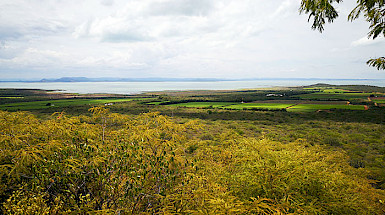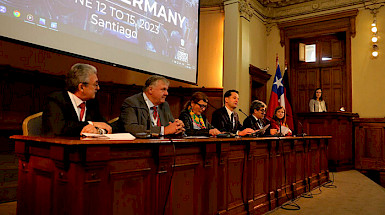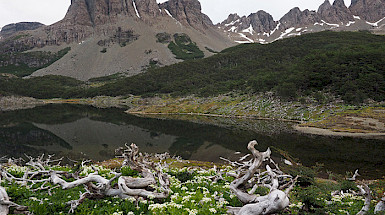Keywords: Sustainable Development

Boosting Chile's Green Hydrogen Revolution
Key representatives from the public, private, and academic sectors, in collaboration with active participation from the UC Chile, have come together to…

Eight UC Chile Students Chosen for UN's Prestigious International Leadership Program
UC Chile students aspire to broaden access to higher education by joining the Millennium Fellowship Class of 2023, a global initiative led by the United…

QS Ranking Positions UC Chile in the Top Sustainable Universities in Latin America
UC Chile secured the fourth position among Latin American higher education institutions and is the number one in Chile. It ranked 159th globally, placing it in…

Researcher Juan Carlos Castilla Highlight ECIM as a Beacon for Marine Conservation
Established four decades ago in Las Cruces, UC Chile Coastal Marine Research Station (ECIM) emerged in response to the need for a dedicated hub for marine…

Leading the Way: Innovative Project Unlocks the Potential of Sustainable Fruit Farming
The aim of a collaborative effort among Brazilian, British, and Chilean researchers, including UC Chile professor Eduardo Arellano, was to advocate for…

Sustainable Development Promotes the First Chile-Germany Academic Forum
Experts from seven universities from both countries, including UC Chile, gathered at the first Chile-Germany Academic Forum. This event is built upon a…

CHIC Project: A Look at Climate Change from the Far Reaches of the World
The Cape Horn International Center, a consortium of seven universities, seeks to study and monitor how sub-Antarctic ecosystems respond to climate change.